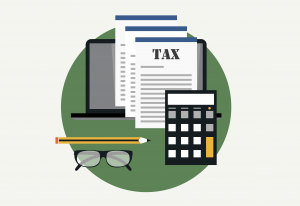When is probate required? Simple: Often.
Probate is required for most Estates in Ontario. In a few, relatively rare cases, the requirement to Probate is waived or avoided by pre-death planning. That is the primary reason to plan ahead. Probate involves taxes, which might be avoided or re-directed with planning.
Probate is required when Court approval of the vesting of the assets of the deceased in the Estate Trustee is required – either to validate the Will, or the choice of Executor, and with respect to the Executor, either because there may be a dispute about who it should be or because some Beneficiaries are unable to consent on their own (for instance, people under disability including minors).
If the Estate is passing from “the first spouse to die to their partner” then it is possible that Probate will not be required because there actually is not an Estate to Probate. This is especially so if a house was owned ‘in joint tenancy with a right of survivorship’ or, possibly with planning, the surviving spouse was the designated Beneficiary of any pension, life insurance, RRSP or TFSA. In these cases, there actually is no ‘Estate’: for the real estate, the surviving joint tenant simply becomes the sole owner of the property, and assets that pass by Beneficiary designation pass directly outside the Estate of the deceased.
If the Estate is passing from one generation to another (parent to children) then Probate is usually required. Some people attempt to avoid Probate by using Beneficiary designations. This is possible, and can be effective, but also creates a substantial risk of Estate disputes. Great care and careful planning should be applied to the process of designating Beneficiaries.
If the Estate includes real estate that does not automatically vest in someone like the spouse of the deceased, then Probate will almost always be required.
Probate can sometimes be avoided for real property that has been held by the deceased for longer than 30 years. When this route is available, the real estate can be transferred directly into the names of the Beneficiaries or Estate Trustee. This route takes advantage of the ‘first dealing exemption’ when a property, registered in the land registry system, is first registered in the land titles electronic system. This must be a first transfer, there must be a valid Will, and it cannot have been Probated. Consult a real estate lawyer or us for your specific situation. Please don’t assume this is always possible and is very tricky.
You cannot avoid Probate just because:
- The Estate is small,
- All Beneficiaries agree,
- There is only one Beneficiary, or
- The only assets are bank accounts or investments.
If a financial institution (bank) where funds are held demands Probate, then Probate is required. Financial institutions are not obliged to waive Probate under any circumstances. Some banks occasionally waive Probate for small Estates when there is no obvious conflict among Beneficiaries. This is entirely at the discretion of the financial institution, and if they refuse in your circumstances the solution is not to argue – it is to Probate immediately. If the financial institution agrees to waive Probate, the Beneficiaries will usually be obliged to sign ‘indemnities’, agreeing to indemnify the bank from any claims.
Assets held in joint tenancy with a right of survivorship do not need to be Probated. Ever. On the death of one co-owner, they no longer own any interest in the property. The other co-owner becomes the sole owner outright.
Assets that pass by Beneficiary designation do not need to be Probated. Things like pensions, RRSPs, TFSAs, and life insurance often have a ‘named Beneficiary’ and pass directly to this named Beneficiary outside the Estate. These Beneficiary designations are only affected by a Will in rare cases if the Will is very carefully drafted (writing a Will at the last minute may not affect previous Beneficiary designations). Estate Administration tax does not need to be paid on real properties outside Ontario.
Learn more about When Canada Revenue is a Beneficiary of Your Estate
Want more information?
Are you interested in a consultation with Peter R. Welsh?
Contact me at Peter@SmartWills.ca
By telephone 416-526-3121
Register for our blog to get valuable tips and up-to-date alerts.
This material is for general information and educational purposes only. Information is based on data gathered from what we believe are reliable sources. It is not guaranteed as to accuracy, does not purport to be complete and is not intended to be used as a primary basis for investment decisions.




